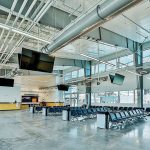Is the skilled labor shortage solved? Has the pandemic ended our labor issues? The coronavirus disruption has raised unemployment to nearly 20% as of the end of May, and in April the construction industry lost nearly a million jobs. With this much available labor, is anyone struggling to find skilled workers?
The coronavirus pandemic is not the cure for the skilled labor shortage

So, that means we’ve solved the skilled labor shortage. Not in the way we hoped, but it’s no longer the burning issue of the industry.
Not so fast. The underlying structural problems that created the skilled labor shortage over the last decades haven’t just disappeared because of the pandemic. Our society still undervalues craft people and overvalues college education. We still lack appropriate training. We still lack secure careers. More on that last one later.
The lack of skilled labor is not a short-term problem solved with short-term solutions. The pandemic will cause extensive damage to the economy and the construction industry that may last for months or years. But the labor shortage was created over decades and a few months of available labor won’t solve this problem.
I would argue also that the pandemic could make the labor shortage worse. There are a couple of reasons I think this. First is that every worker who was laid off is now looking for new work and not necessarily in the construction industry. What percentage of our workforce is going to leave the industry as a result of the mass layoffs this spring?
Those workers who were in the industry before the pandemic struck and were laid off are less likely to come back. That further exacerbates the shortage issue. We now actually have fewer skilled workers than we did before the pandemic. The second point is that when you consider the average age of a construction worker in the United States is 50 years old, we have to assume that in addition to layoffs, we’re going to see a significant number age out of the workforce over the next few years.
This is a tough industry. The jobs we create are great, high-paying jobs. But, as I’ve often said on these pages, we’re not creating great careers. Every few years, the industry hits an economic slump—this one more abrupt and steeper than usual—and sheds a significant portion of its trained, skilled workforce. If you were a motivated young person, trying to take care of his or her family, what would you do when that happens? Would you go back to the job you had with the expectation another economic kick to the knee will come again, or would you find something different and more secure to pursue?
That attitude among workers hasn’t changed because of the pandemic layoffs. If anything, it has become more entrenched.
While we’re dealing with the economic fallout from the pandemic, the industry is doing little to address the longterm issues that drive the labor shortage. Our focus is entirely on keeping our companies alive. We don’t have the luxury of courting, recruiting and training young people for our industry. We don’t at this moment have anything to offer other than a promise of future employment.
It’s hard to think about now, but we need to continue sending our messages of opportunity to high schoolers. We need to identify and spotlight those areas of the construction industry that are still working and show that there are careers available.
According to our surveys, very few contractors anticipate the layoffs will be permanent, so we need to make a major push to get those people back to work again and on secure financial footing. But what if we’d never had to lay off those workers?
In Germany, during the economic slowdown, the government covered 90% of laid-off workers salaries. You want young people to consider the trades as a good career? That kind of guarantee of financial security will do more to attract them than any notion of pride or success of accomplishment they may get from the work they do.
In the end, we’ll come out of the pandemic with fewer workers in the industry and fewer people interested in coming into the industry. I know it’s hard to think about now, but we have to keep our focus on solving the skilled labor shortage even at this difficult time and devise solutions to ensuring people can build careers and not just hold jobs.





